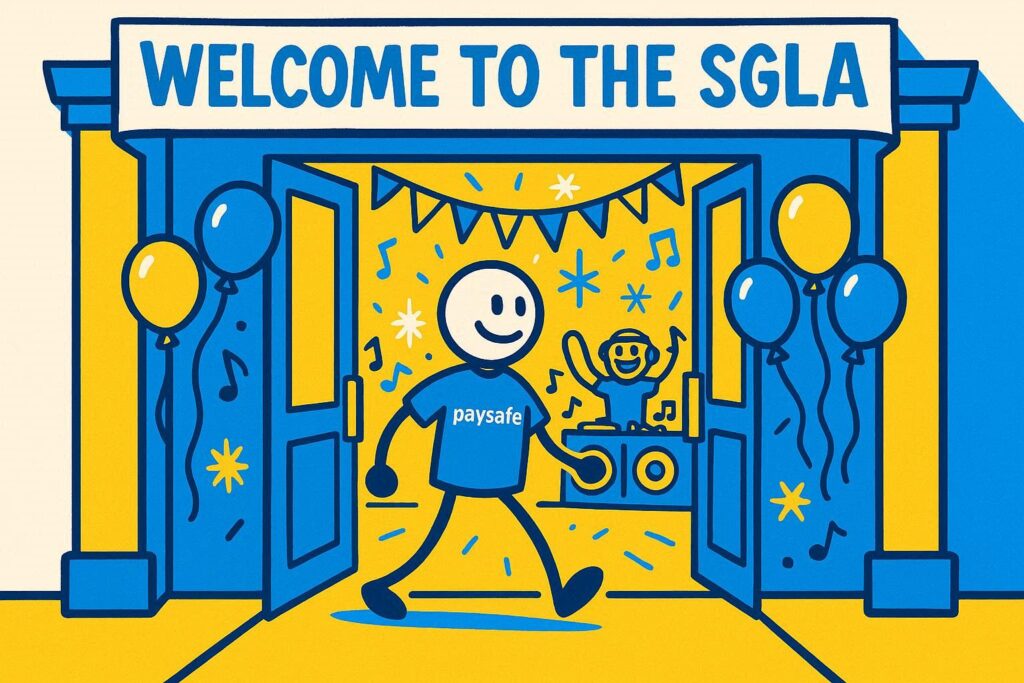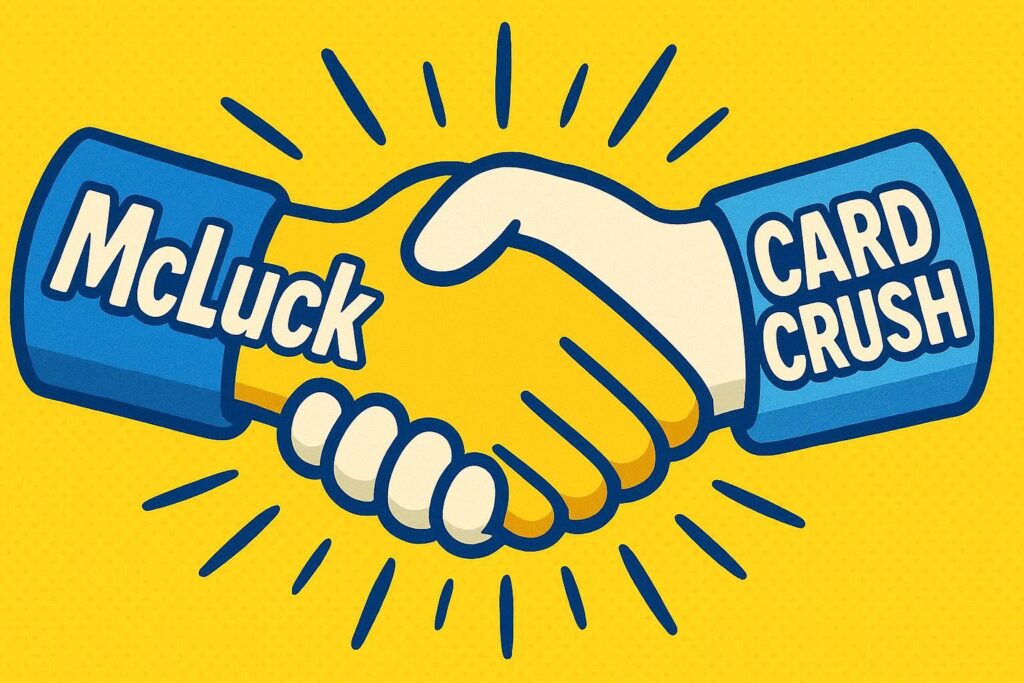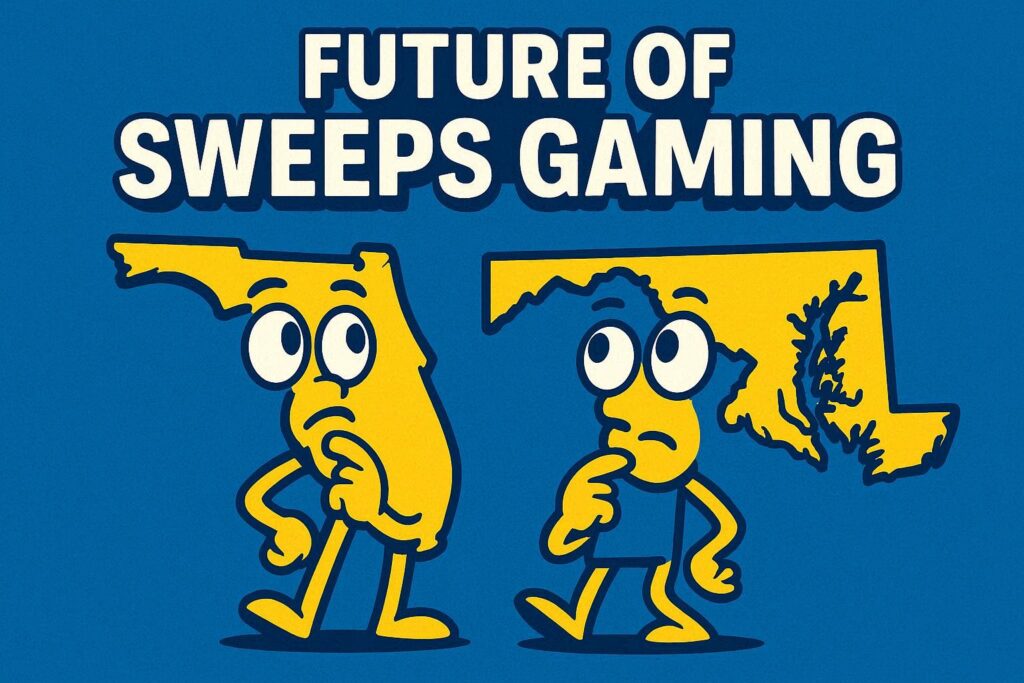Sweepstakes casino sites aren’t the only platforms leaving states where cease-and-desist letters have been issued against the sweeps industry.
Prominent developers of games used in sweeps casinos, such as Evolution, Pragmatic Play, Relax Gaming, and Hacksaw Gaming, are also choosing to pull their games from states where cease-and-desist letters have been issued. That means that games created by some or all of those companies can no longer be accessed by any sweeps casinos still operating in states such as Louisiana or Mississippi.
There had been some recent social media chatter about Pragmatic Play games being no longer available in Louisiana, and an industry source told Sweepsy that several developers are electing to pull their games off sites in cease-and-desist states.
Which providers are pulling out? And where?
In Louisiana, some of the developers to remove their games from active sites include:
- Relax Gaming
- Playson
- Hacksaw Gaming
- Slotmill
- Skywind Group
- 1×2 Gaming
In Mississippi, that list is mostly the same, except you replace 1×2 Gaming with Evolution.
In Arizona, Evolution has opted to pull its games.
Last month, the Louisiana Gaming Control Board sent out 42 cease-and-desist letters to offshore and sweepstakes gaming operators. And earlier this month, Louisiana Attorney General Liz Murrill wrote a legal opinion backing up those letters, saying the dual-currency online sweepstakes gaming model constitutes illegal online gambling under state law.
That deluge of letters may seem like it would cover the lion’s share of the sweepstakes casino market, but the truth is it maybe covers 20-30%. New sweeps sites are cropping up every day, and there is still a huge chunk of the industry that has not been directly issued a cease-and-desist.
Translation: You’ve got plenty of operators still operating until they’re ordered not to.
The number of sweepstakes casinos not sent cease-and-desists is even larger in Mississippi — where Chumba Casino was the only sweeps operator in the 10 letters it sent out in June — and Arizona — where only High 5 Games, Stake.us, and Rebet were singled out with cease-and-desist letters last month, although Modo.us also received one in April.
The rationale for leaving
However, while some operators may be choosing to remain active because they haven’t received a cease-and-desist (and some who have received a cease-and-desist still haven’t left), clearly a handful of major games developers aren’t choosing to take that same risk and are making their games unavailable in Louisiana, Mississippi, and Arizona — even if sweeps casinos they partner with are still live in those states.
It’s a legal decision for those developers. The sweeps casinos, themselves, are obviously the focus of scrutiny in the bills and cease-and-desist letters that have characterized 2025 so far. But the companies providing the games players play can also be held liable, should a government or Attorney General ever choose to take legal action.
While the primary legal responsibility would fall on the sweeps casino operator, a manufacturer — like Evolution or Pragmatic Play or Hacksaw Games, etc. — could theoretically face doubt if lawyers can prove they met a handful of conditions, including:
- They knowingly allowed sweeps operators who received a cease-and-desist letter to offer their games in states.
- Or, if the developer is aware of the letters and continues supplying games in the state, they could be accused of facilitating activity regulators have flagged as unlawful.
Continuing to provide sweeps platforms in these situations could be appearing “willfully blind” — which courts may treat the same as actual knowledge.
It should be noted, however, that most often the prominent game developers protect themselves in their contracts with gaming platforms. They’ll include clauses in their contracts that require the platform to ensure legal compliance in the markets where the games are offered.
And many of these contracts will also include clauses that absolve the providers of legal responsibility if the operators use the provider’s games illegally.
Still, many reputable brands are being careful here, especially as many of these brands also work in the regulated iGaming space and definitely don’t want to do anything to ruffle regulators’ feathers in those sectors.
Bottom line: It’s not a slam dunk either way, which is why you see some developers pulling their games in cease-and-desist states, but others keeping their games available in those states.
An eye to the future
Beyond activity in cease-and-desist states, games providers are also pulling out of states where legislation has been passed in 2025. Per the industry source, Pragmatic Play, for instance, is officially out of Connecticut, Montana, and New York — all of which passed sweeps ban bills during their respective 2025 legislative sessions.
Two other states still have active sweeps ban bills. The California bill, Assembly Bill 831, is hogging all the headlines. And rightfully so. California is the No. 1 market for many, if not all, sweeps platforms operating in the United States. That bill receives its next committee hearing on July 15 after passing its first committee hearing last week.
But there is also an active bill in Ohio. House Bill 298, which would legalize real-money online casinos as well, hasn’t seen any movement since late May, but Ohio’s legislative session runs through the end of the year, so there is still ample time.








